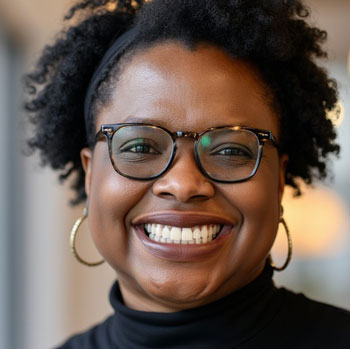In the nonprofit sector, countless organizations do vital, life-affirming work. Yet too often, those led by Black changemakers are overlooked, underfunded, or erased from the dominant narrative of philanthropy. With over 35 years of experience as a nonprofit leader, consultant, and researcher, I’ve seen firsthand how African American-founded organizations have built legacies of service against the odds, often without recognition or equitable investment.
This is a call to funders, sector leaders, and scholars: if we truly want to understand American philanthropy, we must first reckon with those whose stories have been left out.
This is a call to funders, sector leaders, and scholars: if we truly want to understand American philanthropy, we must first reckon with those whose stories have been left out.
Dr. Orletta Caldwell Tweet
The Roots of Black Philanthropy
As I explain in my forthcoming book, Legacies of Persistence: The Invisible History of African American Nonprofits, Black philanthropy did not begin with 501(c)(3) status. It is centuries old and rooted in mutual aid, the Black church, fraternal organizations, burial societies, and community trusts. In these spaces, giving was not transactional but transformational. Their gifts were about survival, self-determination, and cultural preservation. Black communities practiced collective care long before institutional philanthropy took notice.
Yet despite this deep tradition, today’s philanthropic infrastructure often fails to reflect or support these legacies. The sector has slowly shifted from a charity mindset to one of solidarity and justice, especially when engaging Black-led institutions.
Structural Inequities in Giving
Research consistently shows that Black-led nonprofits receive less unrestricted funding, capacity-building support, and multiyear commitments than their white-led counterparts, even when doing similar or more innovative work. Worse, they are often funded through a deficit lens—viewed as problems to be fixed rather than partners to be trusted.
This perpetuates a cycle of underinvestment and invisibility. When Black-led organizations are excluded from research, panels, and major funding opportunities, their impact is minimized, and the sector misses solutions born from lived experience.
Reclaiming Legacy, Building for the Future
Through my work with Beyond Existing Enterprises and The Urban Nonprofit, I’ve met leaders who embody a “legacy of persistence”, organizations that endure economic downturns, leadership transitions, and chronic underfunding yet still serve with excellence. These groups are not anomalies. They are the backbone of community resilience.
Legacies of Persistence is more than a history book. It is a roadmap that honors these institutions, highlights their strategies, and argues for sustained, trust-based investment. It centers leadership, which is too often dismissed for not conforming to mainstream expectations.
A Call to Action for Philanthropy
For those in philanthropy, this is a moment to ask: Where does your funding go, and where is it absent? Are you supporting proximity to power or proximity to the problem? Are your grant processes accessible or exclusionary? Are you listening to organizations that have always been there but have never truly been seen?
We must stop labeling these nonprofits as “emerging.” Many have operated for decades. They are legacy institutions, even if they’ve never received legacy funding.
Moving Beyond Charity to Change
To honor these legacies, funders must move beyond short-term grants into long-term, equitable partnerships. This means multiyear funding, unrestricted dollars, culturally competent capacity building, and trust.
We must also expand our definitions of leadership, impact, and sustainability—especially in communities that have done more with less for far too long.
Final Thoughts
The goal of this article and my book is simple: to document, dignify, and demand equity for Black-led nonprofits. Their stories are not new, but it’s past time we gave them the platform, resources, and recognition they deserve.
By reclaiming these histories, we make room for a future where every legacy of giving is valued, not just the ones philanthropy has traditionally acknowledged.







